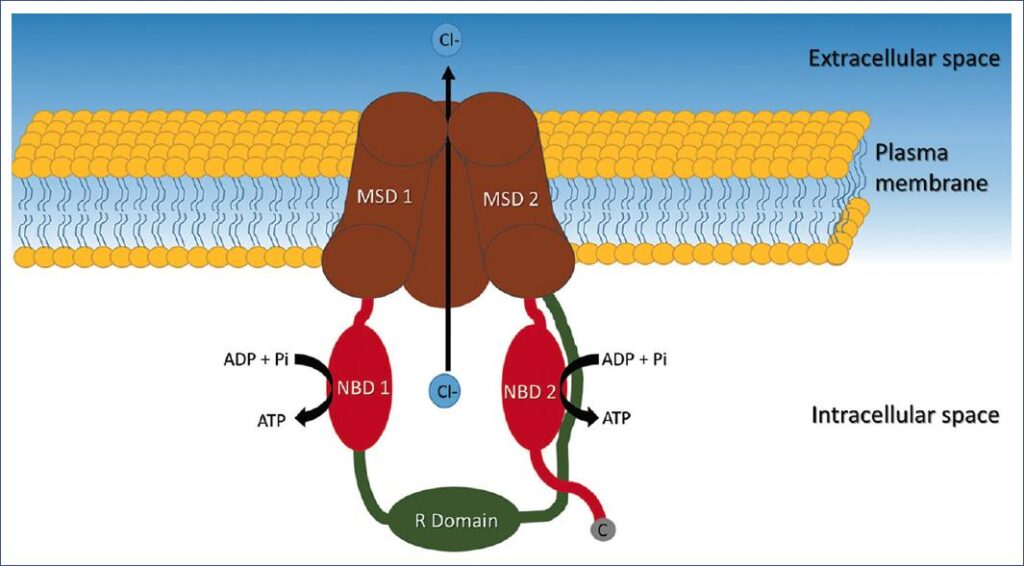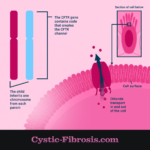Cystic fibrosis (CF) is a genetic disorder characterized by mutations in the cystic fibrosis transmembrane conductance regulator (CFTR) gene. Among these mutations, the F508del variant is notably prevalent. This article delves into the implications of being heterozygous for the F508del mutation, exploring its impact on CF manifestation and related health considerations.

Understanding the CFTR Gene and the F508del Mutation
The CFTR gene encodes a protein that functions as a chloride channel, playing a pivotal role in maintaining the balance of salt and water across epithelial cells. The F508del mutation involves the deletion of three nucleotides, leading to the absence of phenylalanine at position 508. This deletion results in improper folding of the CFTR protein, causing its degradation and subsequent deficiency at the cell surface. Consequently, chloride ion transport is disrupted, leading to the characteristic thick mucus associated with CF.
Heterozygosity for the F508del Mutation: Clinical Implications
Individuals heterozygous for the F508del mutation carry one mutated allele and one normal allele of the CFTR gene. Traditionally, such carriers were considered asymptomatic. However, emerging research suggests potential health implications:
- Respiratory Health: Some studies indicate that F508del carriers may exhibit increased airway reactivity and a higher susceptibility to respiratory conditions, including asthma. The exact mechanisms remain under investigation, but it is hypothesized that even partial CFTR dysfunction could influence respiratory health.
- Pancreatic Function: While pancreatic insufficiency is a hallmark of CF patients homozygous for the F508del mutation, heterozygous carriers generally maintain normal pancreatic function. Nonetheless, there is limited evidence suggesting a potential, albeit minimal, risk for pancreatitis in carriers.
- Reproductive Health: Male carriers typically do not experience the reproductive complications seen in CF patients, such as congenital bilateral absence of the vas deferens. Female carriers also do not exhibit CF-related fertility issues.
Genetic Counseling and Testing for Carriers
Given the potential health implications and reproductive considerations, genetic counseling is recommended for individuals with a family history of CF or those known to be carriers of the F508del mutation. Carrier testing can inform family planning decisions and provide insights into potential health risks.
Advancements in CFTR Modulator Therapies
Recent developments in CFTR modulator therapies, such as the combination of elexacaftor, tezacaftor, and ivacaftor, have shown promise in improving CFTR function in patients with specific mutations, including F508del. While these treatments are primarily designed for individuals with CF, ongoing research is exploring their potential benefits for carriers exhibiting CFTR-related symptoms.

